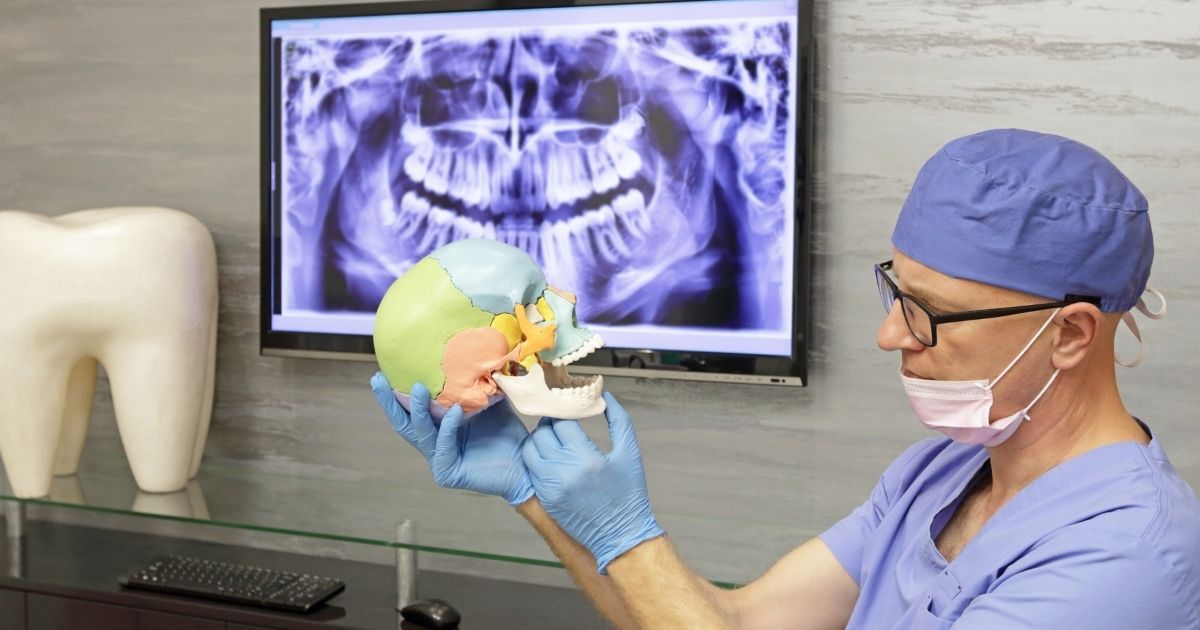The temporomandibular joint (TMJ) is the joint in the jaw that allows people to speak and chew. The condition commonly referred to as TMJ is actually a collection of painful disorders that result if the joint is damaged by disease or trauma. These treatments for these disorders vary according to the causes, characteristics, impacts, and other particulars of the damage. Below is a discussion of some information on the most common types of TMJ cases and their treatments.
What is the TMJ?
The TMJ is one of the body’s most complex joints. It works as both a ball and socket joint, behaving as a hinge when the jaw opens, as well as sliding joint, which allows the jaw to move side-to-side or front-to-back within the confines of the joint’s connecting tissues.
What are the Basics of a TMJ Disorder?
The TMJ joint is the hinge that connects the jawbone to the skull. TMJ disorders are basically a displacement of the jaw bones that cause the bones to grind together and cause pain, stiffness, or mobility issues. The bones of the jaw are protected at the joint with a disk that provides cushioning to prevent the bones from rubbing together. If this cushion or the bones themselves become displaced or damaged, the jaw may not work the way it should.
What are Common Issues with TMJ Disorders?
TMJ disorders can be caused by disease, congenital issues, or trauma. Some TMJ disorders are linked to the issues such as:
- Diseases that cause inflammation or degenerative issues
- Rheumatoid arthritis or osteoarthritis
- Structural problems with the joint
- Damage caused by physical trauma
What are Symptoms that May Indicate a TMJ Issue?
TMJ conditions are marked with some of the following symptoms:
- Facial or jaw pain
- Head or neck pain
- Trouble eating, drinking, talking, etc.
- Inability to open or close the jaw
- Jaw clicking or popping, often accompanied by pain
- Jaw catching when the jaw temporarily locks in an open position
- Jaw displacement when the jaw locks closed
- Teeth grinding, or bruxism
What are Treatment Options for TMJ Disorders?
Treatment options include both surgery and non-surgical options. For stress-related TMJ, a therapist may recommend relaxation techniques, exercise, or behavioral approaches to avoid teeth clenching. Use of certain oral appliances, such as night guards, occlusal guards, or splints, might be appropriate to keep teeth grinding and pressure at bay. Medications such as anti-inflammatories and muscle relaxers may help. Another option is the use of a transcutaneous electrical nerve stimulation (TENS) unit, which uses a harmless electrical charge to stimulate nerves to relieve pain. In most cases, non-surgical treatment is enough to relieve TMJ symptoms, especially if the condition is treated in a timely fashion.
If the joint sustains damage or disease causes severe damage, surgery may be required.
When surgery is necessary, options include:
- Arthroscopic surgery
- Arthrocentesis
- Soft tissue repair
- Joint reconstruction
Mullica Hill Oral Surgeons at Lanzi Burke Oral & Maxillofacial Surgeons Diagnose and Treat TMJ Disorders
If you have been experiencing facial pain or severe jaw discomfort, you may be suffering from a TMJ disorder. The Mullica Hill oral surgeons at Lanzi Burke Oral & Maxillofacial Surgeons have a combined 60 years of experience to diagnose your jaw problem and provide effective treatment to address your concerns and relieve your pain. Call us at 856-582-4222 or contact us online to make an appointment or schedule a consultation. With offices in Washington Township, Haddonfield, and Woolwich Township, New Jersey, we are dedicated to helping patients throughout South Jersey.


